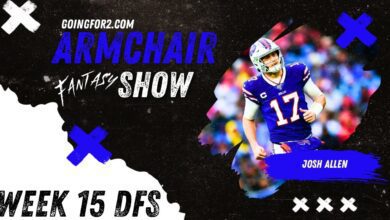How Does DFS Differ From Traditional Football Fantasy Leagues
How Does DFS Differ From Traditional Football Fantasy Leagues

Fantasy football has become a beloved pastime for football enthusiasts, offering a way to engage with the sport on a deeper level. Among the various formats, Daily Fantasy Sports (DFS) and traditional fantasy football leagues stand out. While both share a common goal of assembling the best possible team, their structures and strategies differ significantly.
Structure and Duration
Traditional fantasy football leagues typically span the entire NFL season. Participants draft their teams before the season starts and manage them throughout, making weekly adjustments based on player performance, injuries, and other factors. This long-term commitment requires a season-long strategy, with the ultimate goal being to accumulate the most points by the end of the season.
In contrast, DFS leagues operate on a much shorter timeframe, often daily or weekly. Participants draft a new team for each contest, allowing for more flexibility and experimentation. This structure is ideal for those who enjoy immediate gratification and want to participate without the long-term commitment required by traditional leagues.
Drafting Players
The draft process in traditional leagues is a significant event, often conducted live where participants take turns selecting players. This draft is typically a snake format, where the order reverses each round to ensure fairness. Once drafted, players remain on the same team unless traded or released, and waiver wires are used to manage undrafted players.
DFS leagues utilize a salary cap system for drafting players. Each participant is given a budget to spend on their team, with player prices varying based on their perceived value and performance. This format allows for a unique drafting experience every time, as participants must strategically allocate their budget to create the best possible team within the constraints.
Strategy and Skill
Success in traditional leagues often requires a deep understanding of the sport, long-term planning, and the ability to predict player performance over the course of a season. Trades, waiver wire pickups, and weekly lineup adjustments are critical components of the strategy. Consistency and foresight are key, as one bad week can be overcome by strong performance in subsequent weeks.

DFS leagues emphasize short-term strategy and quick decision-making. With the ability to draft a new team each week, participants must stay current with player statistics, matchups, and other relevant factors. The rapid turnover allows for more frequent opportunities to win but also demands constant vigilance and the ability to adapt quickly to changing circumstances. Platforms like FanDuel Football bets enhance this experience by offering a variety of contests and additional betting options, enabling participants to leverage their knowledge and skills for immediate rewards.
Community and Interaction
Traditional leagues often foster a strong sense of community and camaraderie among participants. Many leagues are comprised of friends, family, or colleagues, adding a social element to the competition. The long-term nature of the league allows for ongoing interaction, trade negotiations, and friendly banter throughout the season.
While DFS leagues can also be social, they typically lack the same level of ongoing interaction found in traditional leagues. The focus is more on individual performance in each contest rather than long-term relationships. However, many DFS platforms offer forums and chat features to engage with other participants and share strategies.
Payouts and Prizes
In traditional leagues, payouts and prizes are usually awarded at the end of the season. The top-performing teams receive the winnings, which can include cash prizes, trophies, or other rewards. This delayed gratification is part of the appeal, as participants work towards a season-long goal.
DFS leagues offer the potential for immediate payouts, with prizes awarded at the end of each contest. This aspect is particularly attractive to those who enjoy the thrill of frequent wins and the opportunity to earn money regularly. The stakes can vary from small entry fees to high-stakes contests, catering to a wide range of participants.
Love our content? Check out the GoingFor2 Live Podcast Network!
Conclusion
Both DFS and traditional fantasy football leagues offer unique experiences for participants. Traditional leagues provide a long-term, strategic challenge with a strong sense of community, while DFS leagues cater to those seeking quick rewards and flexible participation.
ATTN Dynasty Commissioners: Do you want to do something cool for your league? How about a 1-hour live show dedicated to YOUR league? Team-by-team breakdowns, rankings, and more. For details and to book a show, visit: GoingFor2.com/plp.




